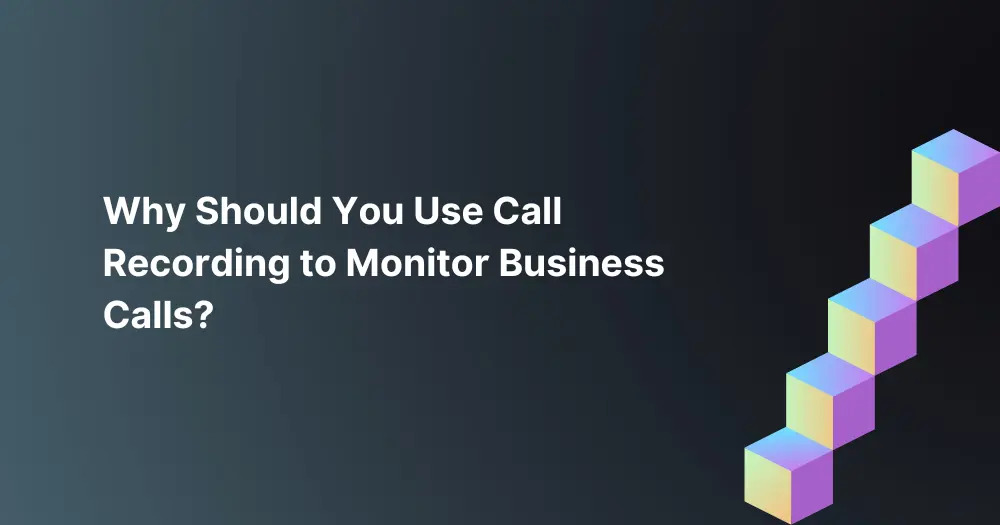
In the modern era of Internet reliance, businesses recognize the importance of cloud-based tools and Voice-over-Internet Protocol (VoIP) for future-proofing operations. One of VoIP’s key features, call recording, allows you to capture and store audio conversations for later use, providing a wealth of benefits for your business looking to enhance your customer experience, empower your employees, and protect your operations.
Call recording capabilities can vary depending on the VoIP platform or service provider. However, some common features include:
Feedback Analysis for Personalized Interactions: Call recording is a valuable tool to enhance your business’s customer service. It allows you to analyze recorded calls to understand customer needs and preferences and personalize interactions. In addition, the recorded calls can be used to identify common problems and pain points that your customers are facing, which can then be addressed, leading to an improved customer experience. Understanding customer needs and preferences can help you tailor your approach to each customer, making them feel heard and valued.
Performance Evaluation for Targeted Training: Supervisors can use recorded calls to enhance the customer service team’s performance. By reviewing these calls, you can pinpoint areas that require improvement and provide focused training, enabling you to create development programs tailored to your team’s needs. The call recordings can be used to give constructive feedback to employees based on real customer interactions that can help your employees understand their strengths and areas where they need to improve.
Showcase Best Practices: Call recordings can be useful training tools for new employees. Sharing exceptional call recordings with your team can inspire and motivate employees while also providing them with valuable training material. It also allows your new employees to have access to different types of customer interactions, including challenging situations.
Optimize Onboarding and Product Knowledge Training: Call recordings can be incorporated into onboarding processes for new employees. Providing employees with real-life examples of communication style, product information, and customer handling techniques can help them establish a streamlined and standardized approach.
Protect Against Disputes and Lawsuits: The recorded calls can be used as evidence of customer complaints or legal challenges. When misunderstandings or conflicts arise with customers or partners, it can be used to resolve disputes by providing a clear and accurate account of what was discussed.
Ensure Adherence to Company Policies: Monitor calls to guarantee that agents comply with established protocols and regulations.
Document Customer Consent: During customer service calls or other business-related conversations, call recording lets you document verbal agreements or customer consent to terms and conditions. Recorded calls serve as clear evidence for both parties and can be helpful for future reference if any disputes or misunderstandings arise.
Identify Suspicious Activity: Regularly reviewing call recordings can help businesses prevent potential fraud attempts and suspicious behavior in real time, especially those that handle sensitive customer data or engage in financial transactions.
Are you looking to improve your business communications? Our Hosted VoIP solutions offer advanced features such as call recording, texting, eFax, and more, which can assist in improving customer service and overall business communications. BlackPoint will handle the complete deployment of your phone system, ensuring a smooth transition from your previous phone solution. Book a personalized consultation with us to discover how we can begin your VoIP journey.